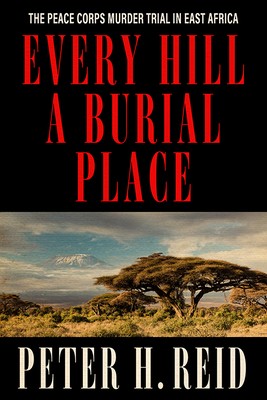
- We will send in 10–14 business days.
- Author: Peter H Reid
- Publisher: University Press of Kentucky
- ISBN-10: 0813195683
- ISBN-13: 9780813195681
- Format: 15 x 21.8 x 2.5 cm, minkšti viršeliai
- Language: English
- SAVE -10% with code: EXTRA
Reviews
Description
On March 28, 1966, Peace Corps personnel in Tanzania received word that volunteer Peppy Kinsey had fallen to her death while rock climbing during a picnic. Local authorities arrested Kinsey's husband, Bill, and charged him with murder as witnesses came forward claiming to have seen the pair engaged in a struggle. The incident had the potential to be disastrous for both the Peace Corps and the newly independent nation of Tanzania. Because of the high stakes surrounding the trial, questions remain as to whether there was more behind the final "not guilty" verdict than was apparent on the surface.
Peter H. Reid, who served as a Peace Corps volunteer in Tanzania at the time of the Kinsey murder trial, draws on his considerable legal experience to expose inconsistencies and biases in the case. He carefully scrutinizes the evidence and the investigation records, providing insight into the motives and actions of both the Peace Corps representatives and the Tanzanian government officials involved. Reid does not attempt to prove the verdict wrong but examines the events of Kinsey's death, her husband's trial, and the aftermath through a variety of cultural and political perspectives.
This compelling account sheds new light on a notable yet overlooked international incident involving non-state actors in the Cold War era. Meticulously researched and replete with intricate detail, Every Hill a Burial Place explores the possibility that the course of justice was compromised and offers a commentary on the delicacy of cross-national and cross-cultural diplomacy.
EXTRA 10 % discount with code: EXTRA
The promotion ends in 22d.17:45:38
The discount code is valid when purchasing from 10 €. Discounts do not stack.
- Author: Peter H Reid
- Publisher: University Press of Kentucky
- ISBN-10: 0813195683
- ISBN-13: 9780813195681
- Format: 15 x 21.8 x 2.5 cm, minkšti viršeliai
- Language: English English
On March 28, 1966, Peace Corps personnel in Tanzania received word that volunteer Peppy Kinsey had fallen to her death while rock climbing during a picnic. Local authorities arrested Kinsey's husband, Bill, and charged him with murder as witnesses came forward claiming to have seen the pair engaged in a struggle. The incident had the potential to be disastrous for both the Peace Corps and the newly independent nation of Tanzania. Because of the high stakes surrounding the trial, questions remain as to whether there was more behind the final "not guilty" verdict than was apparent on the surface.
Peter H. Reid, who served as a Peace Corps volunteer in Tanzania at the time of the Kinsey murder trial, draws on his considerable legal experience to expose inconsistencies and biases in the case. He carefully scrutinizes the evidence and the investigation records, providing insight into the motives and actions of both the Peace Corps representatives and the Tanzanian government officials involved. Reid does not attempt to prove the verdict wrong but examines the events of Kinsey's death, her husband's trial, and the aftermath through a variety of cultural and political perspectives.
This compelling account sheds new light on a notable yet overlooked international incident involving non-state actors in the Cold War era. Meticulously researched and replete with intricate detail, Every Hill a Burial Place explores the possibility that the course of justice was compromised and offers a commentary on the delicacy of cross-national and cross-cultural diplomacy.


Reviews